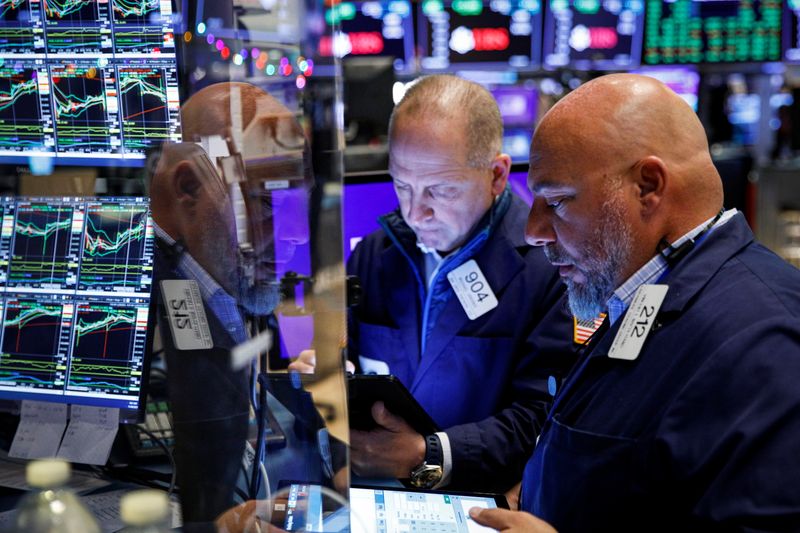This post was originally published on this site

Investing.com — U.S. stock markets opened mostly higher on Friday after the U.S. and European Union agreed on a deal that will markedly increase shipments of U.S. liquefied natural gas to Europe.
On the one hand, the deal will help Europe to reduce its purchases of Russian energy, increasing the economic pressure on Vladimir Putin’s government. On the other, it appears to signal that both sides are now prepared for a long and attritional hybrid war against each other that threatens to act as a drag on global growth for the foreseeable future. Ukraine’s government again repeated Friday that Russia’s demands for it to recognize Russia’s annexation of Crimea and the breakaway eastern Ukrainian statelets established in 2014 are unacceptable.
The deal appears to achieve a decisive breakthrough in the struggle for the European gas market that has been fought over by the U.S. and Russia ever since the shale revolution and the launch of the Nord Stream pipeline project. Cheniere Energy (NYSE:LNG), the U.S.’s biggest pure-play LNG stock, rose 2.9% to another new all-time high. It’s now up 46% so far this year.
By 9:45 AM ET (1345 GMT), the Dow Jones Industrial Average was up 95 points, or 0.3%, at 34,803 points. The S&P 500 was also up 0.3% but the Nasdaq Composite lagged with a gain of less than 0.1%.
The three main indices are on course for a second straight week of gains, having more than erased all their losses since Russia invaded Ukraine a month ago. However, the mood was clouded by fresh signs that the housing market is cooling under the impact of higher prices and rising mortgage rates. Pending home sales fell 4.1% in February, their fourth straight drop, to leave the pending home sales index at its lowest since July 2020. New home sales had also come in below expectations earlier in the week with a second straight monthly fall.
The Michigan Consumer Sentiment index also fell by more than expected to an 11-year low, overshadowed by record gasoline prices and the fading of last year’s stimulus effects.
Among early movers, cannabis stocks stood out with sharp gains amid reports that the House of Representatives will again vote on a bill legalizing pot at the federal level. A previous attempt to pass similar legislation had failed due to opposition in the Senate. Tilray (NASDAQ:TLRY) stock rose 14%, while Aurora Cannabis (NASDAQ:ACB) stock was up 5.2% and Canopy Growth (NASDAQ:CGC) stock was up 6.8%.
Elsewhere, Bed Bath & Beyond (NASDAQ:BBBY) stock rose 1.9% after Chewy (NYSE:CHWY) founder and activist investor Ryan Cohen said three new directors will join the retailer’s board under a settlement hammered out between the two sides. The company will also look for alternatives for its buybuy Baby unit. Apple (NASDAQ:AAPL) stock was left unmoved by a Bloomberg report that it is looking at allowing people to buy iPhones and other hardware through subscription models.
Elsewhere, investors again used the bounce in Chinese ADRs to exit from positions that may soon be complicated by U.S. delisting requirements. Nio (NYSE:NIO) ADRs fell more than 10%, after the electric vehicle also reported deliveries below expectations in the latest quarter. Alibaba (NYSE:BABA) ADRs were down 3.6% while Pinduoduo (NASDAQ:PDD) ADRs fell 4.2%.



